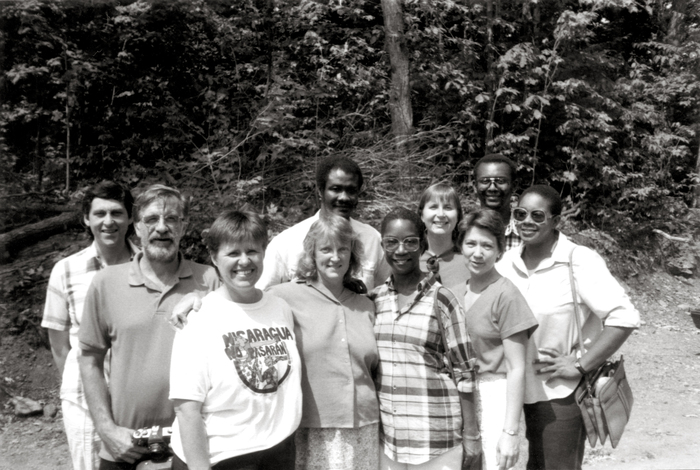Our History

We began our journey as Canadian University Service Overseas (CUSO). Established in June 1961 as an initiative of the Association of Universities and Colleges Canada (AUCC), today known as Universities Canada, our founders believed in the possibility of a more connected world — one where the social constraints into which people are born would not dictate the entirety of their lives.
With AUCC backing, a network of local committees was established to undertake recruitment of recent graduates interested in sharing their knowledge and skills to help others in the expanding number of newly independent states.
The early volunteers, which rapidly grew in number, took their roles as agents of positive change very seriously. They helped fill critical staffing and capacity gaps in developing countries, working as teachers, nurses, and agriculturalists. For many years, Canadian University Service Overseas volunteers (subsequently called CUSO volunteers) were provided housing and were paid a local salary by their employers, mostly governments; they thus served on the same conditions as their national counterparts, becoming global citizens in the process.
“To serve and learn” was the organization’s early mission statement — a thread that continues through Cuso International’s work today.
In the early years, most of CUSO’s volunteers were recent university graduates, and were placed mainly in secondary school and teacher training positions.
Over the decades, CUSO began to fill requests for other experienced technical and trade volunteers — agriculturalists, foresters, fisheries workers, and those skilled in small business, cooperatives, and community development, as well both education and health.
Increased global awareness in the 1970s marked the beginning of the organization’s emphasis on development education in Canada as well as its involvement in the anti-apartheid and liberation movement in southern Africa. During this time, CUSO also initiated project-based work, including a large school reconstruction project in Nigeria in the wake of the Biafran War.
The early 1980s marked the beginning of a new direction for the organization as it broadened its mandate to include social justice issues and a shift in focus to tackle the root causes of poverty and inequality more directly. Over ensuing decades, CUSO has continued its engagement on key development issues, including women’s and minority rights, human development, social action, and environmental sustainability.
In 2008, CUSO merged with Voluntary Service Overseas (VSO), its United Kingdom counterpart. The merger, while short-lived, provided efficiencies of scale, and expanded our thematic areas of focus and our global footprint. In 2011, the organizations again went their separate ways, and CUSO rebranded itself Cuso International. Today, Cuso International continues to place skilled volunteers across a broad spectrum of programs, where they work collaboratively with partners and their communities.
Since our founding, we have placed more than 14,000 skilled volunteers in more than 100 countries.
Compared with our early days, the average age of our volunteers currently is 39. Our expertise in skills sharing includes specific operational expertise in training and deploying volunteers abroad. As a leader among volunteer-sending organizations, we often are called upon to support other organizations engaged in the deployment of volunteers.
While Cuso International’s early days were defined by volunteering, our work today has evolved to respond to the needs of partners and the communities where we work. Volunteers continue to play a central role, supporting and complementing a broad range of international cooperation and development programming approaches we deploy in partnership with civil society organizations, community groups, governments, multilateral agencies, and the private sector. We are active in 16 countries in Africa, Latin America, and the Caribbean, as well as northern Canada.
Cuso International programs are funded by many institutional funders, as well as from direct donations and bequests from generous Canadian donors – including its alumni (returned volunteers), many of whom have had distinguished international development careers or who have played leadership roles in their communities.